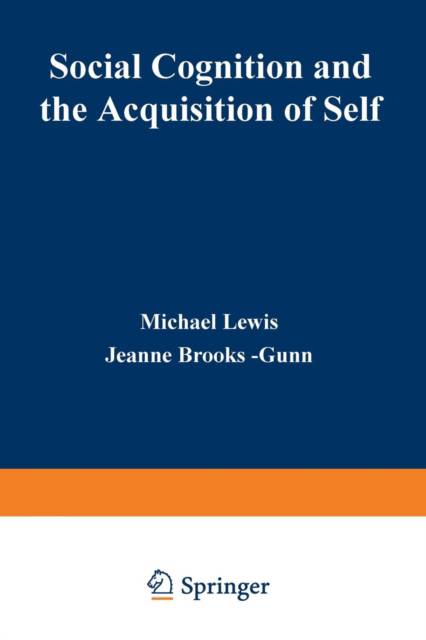
- Afhalen na 1 uur in een winkel met voorraad
- Gratis thuislevering in België vanaf € 30
- Ruim aanbod met 7 miljoen producten
- Afhalen na 1 uur in een winkel met voorraad
- Gratis thuislevering in België vanaf € 30
- Ruim aanbod met 7 miljoen producten
Zoeken
Omschrijving
It is always enlightening to inquire about the origins of a research en- deavor or a particular theoretical approach. Beginning with the observa- tion of the mental life of the infant in 1962, Michael Lewis has contrib- uted to the change in the view of the infant as an insensate mass of confusion to a complex and intellectual being. Anyone fortunate enough to have participated in the infancy research of the 1960s knows how exciting it was to have discovered in this small creature such a full and complex organism. More central to the origins of this work was the perception of the infant as an interactive, not a reactive, organism, and as one who influenced its social environment and constructed its cogni- tive life, not one who just passively received information. Other areas of psychology had already begun to conceptualize the organism as active and interactive, even while developmental psychologists still clung to either simple learning paradigms, social reinforcement theories, or reflex- ive theories. Even though Piaget had proposed an elaborate interactive theory, it was not until the late 1960s that his beliefs were fully im- plemented into developmental theory and practice. A concurrent trend was the increase of concern with mother-infant interactions (Ainsworth, 1969; Bowlby, 1969; Goldberg & Lewis, 1969; Lewis & Goldberg, 1969) which provided the impetus for the study of social and emotional as well as cognitive development.
Specificaties
Betrokkenen
- Auteur(s):
- Uitgeverij:
Inhoud
- Aantal bladzijden:
- 296
- Taal:
- Engels
Eigenschappen
- Productcode (EAN):
- 9781468435689
- Verschijningsdatum:
- 25/11/2012
- Uitvoering:
- Paperback
- Formaat:
- Trade paperback (VS)
- Afmetingen:
- 152 mm x 229 mm
- Gewicht:
- 430 g

Alleen bij Standaard Boekhandel
+ 251 punten op je klantenkaart van Standaard Boekhandel
Beoordelingen
We publiceren alleen reviews die voldoen aan de voorwaarden voor reviews. Bekijk onze voorwaarden voor reviews.











